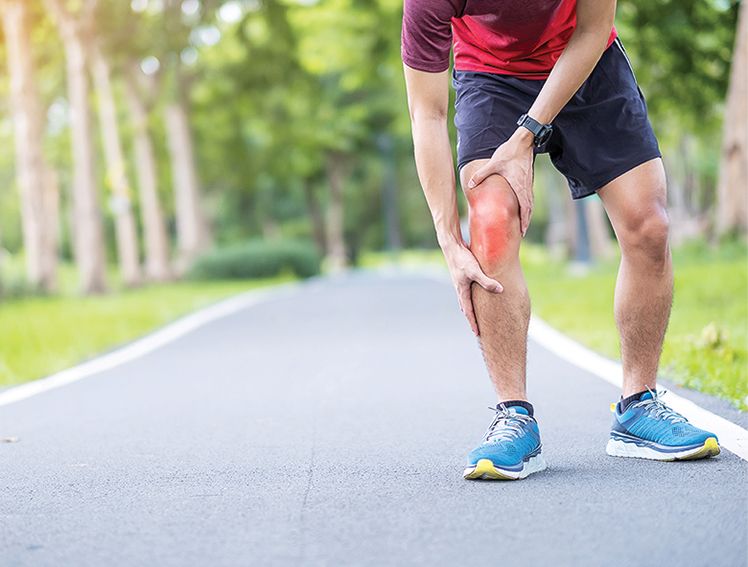
Redefining Mobility with Advanced Robotic Knee Replacement Technology
How Does Robotic Knee Replacement Work?
In robotic knee replacement, robotic technology helps surgeons by creating detailed 3D images of your knee, making it easier to plan and perform the surgery with great precision. Unlike traditional methods, it uses these images to design a personalized surgical plan that matches your body’s needs, ensuring the implant fits just right. With this model, they can plan the exact size, angle, and position of the knee implant, reducing the risk of errors.
High Success Rates Due to Unmatched Accuracy
Robotic knee replacement exhibits high success rates, thanks to its precision and tailored approach. The technology helps reduce risks such as implant misalignment or uneven wear on the joint, which are more common with traditional methods. Patients often report long-lasting results, improved joint function, and better overall satisfaction with the surgery.
Benefits of a Tailored Fit
Every knee is unique, and robotic technology helps place an implant that feels natural. A well-fitted knee replacement improves mobility and reduces the chances of complications. With robotics, the surgeon can make more precise cuts and adjustments, to make sure the implant aligns perfectly with your joint.
Fewer Days in the Hospital
Robotic knee replacement is often less invasive than traditional surgery, which means you might spend fewer days in the hospital. Because the surgery is more precise, there is less damage to surrounding tissues, leading to quicker recovery. Many patients find they can go home sooner and begin their rehabilitation after knee replacement surgery in the comfort of their own space.
Back to Your Daily Routine Faster
A quicker recovery means you can return to your normal activities sooner. Whether it’s walking, climbing stairs, or enjoying time with family, robotic-assisted knee replacement can help you regain your independence faster. The precision and less invasive nature of the surgery minimizes complications, allowing you to focus on healing and rebuilding strength.
Minimal Pain
One of the biggest advantages of robotic knee replacement is reduced pain during recovery. Because the technology minimizes tissue damage and enhances surgical accuracy, your body requires less time to heal. This means less swelling, fewer post-operative complications, and a smoother path to feeling like yourself again.
What to Expect During Recovery: Timeline and Tips
Recovery from knee replacement surgery is a gradual process, but robotic technology makes it smoother and more efficient. Combining advanced surgical precision with proper post-surgery care can ensure a faster return to daily activities. Here's a recovery timeline and tips to guide you:
First Week:
After surgery, you may start walking with support, such as a walker or crutches. Early movement is key to preventing stiffness and promoting circulation. Physical therapy typically begins during this period to strengthen your muscles and improve joint flexibility.
2–6 Weeks:
As you progress, many patients can walk without assistance and start light activities like household chores. Using ice packs during this time can reduce swelling, while heat therapy can relieve stiffness, as suggested in arthritis recovery practices.
6–12 Weeks:
By this stage, you may return to moderate routines like driving or gentle exercise. Practicing regular stretching and muscle-strengthening exercises, as outlined in arthritis recovery tips, can help maintain joint mobility.
Beyond 3 Months:
Most patients experience significant improvements in mobility and a reduction in pain. Activities like swimming or walking may be introduced to maintain strength and support long-term joint health.
Recovery Tips:
Stay Active Gradually: Engage in gentle, consistent movement to build strength while avoiding strain on your knee.
Use Heat and Ice Therapy: Heat therapy can prepare your muscles and joints for activity, while ice therapy can reduce swelling and pain afterward.
Follow a Balanced Diet: Incorporate fruits, vegetables, and proteins like fish to promote healing and maintain a healthy weight. This reduces strain on the new joint.
Prioritize Mental Well-being: Recovery can sometimes feel overwhelming. Practices like deep breathing, journaling, and connecting with loved ones can reduce stress and boost your mental health.
By integrating these practical tips and adhering to your doctor’s advice, your recovery journey can be smoother, leading to long-lasting results.
Additional Lifestyle and Recovery Tips
Recovering from knee replacement isn’t just about physical therapy; your lifestyle plays a big role, too. Here are some tips to enhance your recovery:
- Stay Active: Gentle exercises like walking or swimming can help improve joint mobility and keep you healthy.
- Maintain a Healthy Weight: Reducing stress on your new knee can make it last longer and improve your overall well-being.
- Invest in Supportive Footwear: Comfortable, well-cushioned shoes can reduce pressure on your knees.
Stay Positive: Recovery can be challenging at times, but a positive attitude and support from loved ones can make a big difference.
Misso Robotic System by Meril
The Misso Robotic System by Meril combines advanced technology with AI-driven algorithms to assist surgeons in performing highly precise knee replacement surgeries. By leveraging CT scans, it creates patient-specific 3D models that help tailor the procedure to individual needs. This technology ensures accurate bone cuts and optimal implant placement, leading to better joint function and quicker recovery times. Misso is compatible with Meril's knee implants, such as Freedom, Destiknee, and Opulent, offering a comprehensive solution for knee arthroplasty procedures.
Conclusion
Robotic technology has revolutionized knee replacement surgery, offering precision, faster recovery, and improved outcomes. If you’re considering knee replacement, this advanced option could be the key to regaining your mobility and improving your quality of life.
By reducing hospital stays, minimizing pain, and speeding up recovery, robotic-assisted surgery helps patients return to their daily routines with confidence. Talk to your doctor about whether robotic knee replacement is the right choice for you and take the first step toward a healthier, more active life.



